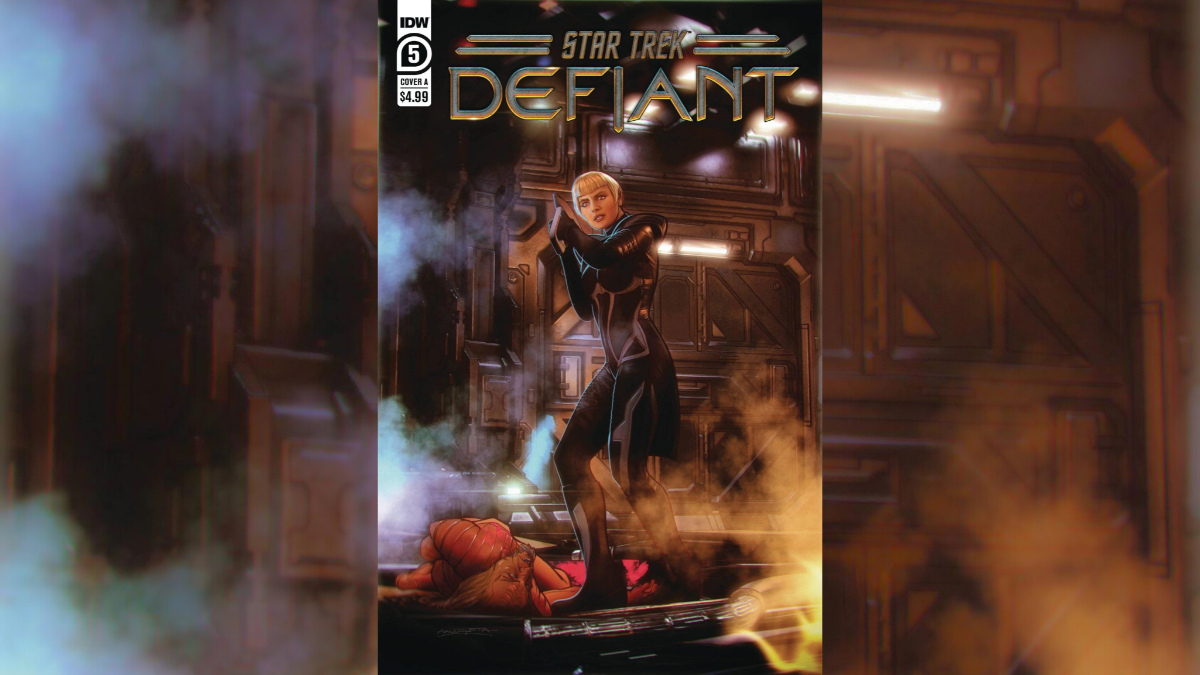TOP FIVE FRIDAY: The Final Frontier: Top 5 Most Pointless Deaths in Star Trek

Image: Paramount / NASA
Star Trek, a cornerstone of science fiction television and cinema, has captivated audiences for decades with its intricate storytelling, compelling characters, and profound explorations of ethical and philosophical dilemmas. Amidst the series' many high-stakes adventures and conflicts, Star Trek has not shied away from the subject of death, using it to drive narratives, develop characters, or underscore the dangers of space exploration. However, not all deaths within the Star Trek universe have resonated with the same level of significance or necessity. In this feature, we embark on a voyage to identify the top five most pointless deaths in Star Trek history, examining how these departures impacted the stories they were part of and the fanbase's reception of them.
5. Tasha Yar (Star Trek: The Next Generation)
Tasha Yar's unexpected demise at the hands of a malevolent alien entity in the episode "Skin of Evil" stands as a stark example of a seemingly pointless exit. As the Enterprise's Chief of Security, Yar's character held promise, but her abrupt death left many storylines unexplored and fans questioning the necessity of her sacrifice. The randomness of her death, intended to highlight the dangers of space, ultimately felt more like a missed opportunity for character development.
4. Jadzia Dax (Star Trek: Deep Space Nine)
The vibrant and beloved Jadzia Dax met her end in the season six finale "Tears of the Prophets," a casualty of a sudden attack. Her death, which occurred due to external factors relating to Terry Farrell's departure from the show, felt abrupt to many fans. While it served to heighten the stakes of the Dominion War, Jadzia's passing was felt as a loss of a deeply complex character, leaving many to wonder if her narrative had been fully realized.
3. James T. Kirk (Star Trek: Generations)
The iconic captain of the USS Enterprise, James T. Kirk, met a controversial end in Star Trek: Generations. His death, while intended to bridge the Original Series with The Next Generation, left fans divided. Kirk's demise under relatively anticlimactic circumstances—falling off a bridge during a scuffle—did not seem fitting for a character of his stature and legacy, leading to debates about the necessity and execution of this pivotal moment.
2. Trip Tucker (Star Trek: Enterprise)
In the series finale of Star Trek: Enterprise, "These Are the Voyages...," Charles "Trip" Tucker III sacrifices himself in a hastily contrived scenario that left fans perplexed. His death, meant to add dramatic weight to the episode, instead felt forced and unnecessary, undermining the character's development and the series' conclusion. The decision to end Tucker's journey in such a manner remains a point of contention among the Star Trek community.
1. Lieutenant Commander Data (Star Trek: Nemesis)
Perhaps the most poignant and debated death is that of Lieutenant Commander Data in Star Trek: Nemesis. While sacrificing himself to save Captain Picard and the crew of the Enterprise, Data's death aimed to underscore themes of humanity and selflessness. However, the finality of his demise, especially given the character's potential for growth and exploration of humanity, left many fans feeling that this end was more tragic than meaningful, rendering it a pointlessly permanent conclusion to a beloved character's story.
Conclusion
While Star Trek has used death to propel its narratives and deepen its characters, not all such moments have felt entirely justified within the vast and complex tapestry of its universe. The deaths listed above stand out as moments where the potential for character growth or narrative development was cut short, leaving fans to ponder what might have been. Despite these contentious departures, Star Trek's enduring legacy continues to inspire, exploring the final frontier and the many facets of the human (and non-human) condition.
Chris Post is a life-long fan of Star Trek who has been working in journalism for nearly 25 years.






